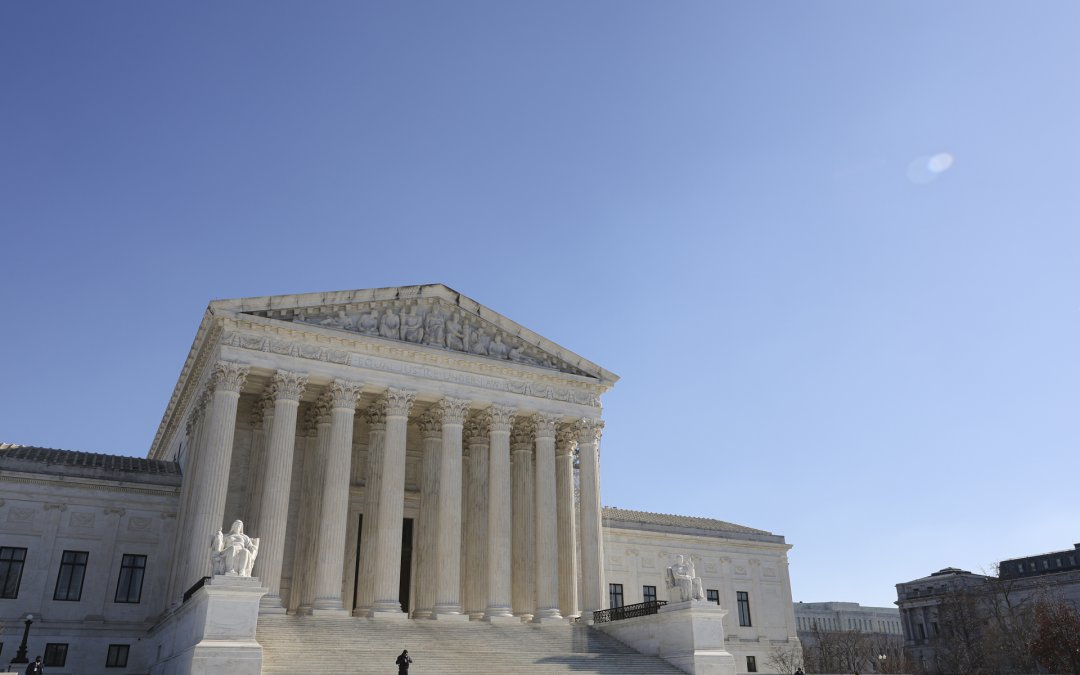WASHINGTON – The Supreme Court heard arguments Wednesday about the evidence plaintiffs must demonstrate to sue employers over company-sponsored retirement plans.
The case, Cunningham v. Cornell University, centers on alleged violations of the Employee Retirement Income Security Act of 1974 (ERISA), which sets minimum standards for many private retirement and benefit plans.
The high court will determine whether plaintiffs need to provide additional evidence that a fiduciary, who manages and administers plans, engaged in unlawful behavior. The ruling could affect employees’ future access to retirement plans and their ability to litigate disputes with those plans.
In a 2016 lawsuit, Casey Cunningham and other retirement plan users at Cornell said they had to pay excessive administrative fees because the university offered many investment options and hired too many recordkeepers. The complaint alleged that this practice violated ERISA’s provision that fiduciaries cannot cause transactions that constitute a “furnishing of goods, services or facilities between the plan and a party in interest.”
Several justices pressed attorneys on how ERISA’s text and various legal precedents would affect the litigation process. Justice Brett Kavanaugh said employees could exploit the plaintiffs’ argument to justify frivolous lawsuits.
“Your theory means, I think, or at least the other side says that it’s a prohibited transaction just to have recordkeeping services, and that seems nuts, right?” Kavanaugh said. “That’s what they say. And it does to me seem nuts, too. So what do we do with that?”
Two circuit courts only require plaintiffs to prove a fiduciary caused a prohibited transaction. Xiao Wang, representing the petitioners, said those courts have sufficient “guardrails” to protect against more “bare-bones” employee lawsuits.
“With respect to Congress and this court’s understanding of Congress’ intent in ERISA, it’s to provide a broadly protective and remedial statute and provide an avenue for plaintiffs to enforce ERISA’s terms and conditions,” Wang said.
Four other circuit courts require plaintiffs to provide additional proof of wrongful behavior. One such court, the 2nd Circuit Court of Appeals, ruled in favor of Cornell in 2023 because the plaintiffs did not prove the transaction was “unnecessary or involved unreasonable compensation.”
“That’s why the Supreme Court took the case — because there needs to be an answer to the question so that you can have the uniformity that encourages plan sponsors to even have plans in the first place,” said Lindsey R. Camp, an ERISA litigation partner for Holland and Knight.
A district court previously dismissed the plaintiffs’ complaint in 2017, saying it lacked evidence of “self-dealing or other disloyal conduct.”
Justice Ketanji Brown Jackson discussed the “information asymmetry” between plan providers and users, the latter of whom may lack information they could otherwise use to plead their cases. Nicole A. Saharsky, arguing for the respondents, said a plaintiff would only need to focus on the exemption or issue relevant to their particular case.
“Even if the Court decides to do something different from the 2nd Circuit, you know, we think the rule should be that they have to plead the unreasonable fees,” she said. “And here, you know, they just didn’t.”
Rising litigation costs may make employers more reluctant to provide benefit packages, leaving employees in a position where they may be unable to afford to retire, Camp said.
“Both the defense side and the plaintiff side want benefit plans to be successful,” she added. “And if you can have an employer be sued simply because he has a service provider agreement, that’s going to be a problem, and people are going to be more reluctant to offer plans.”

